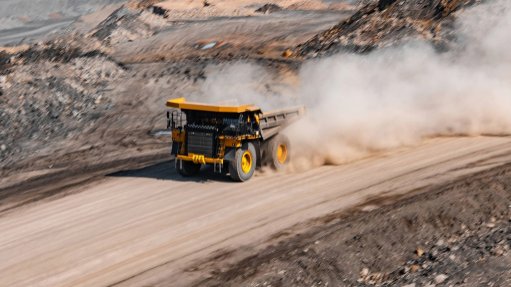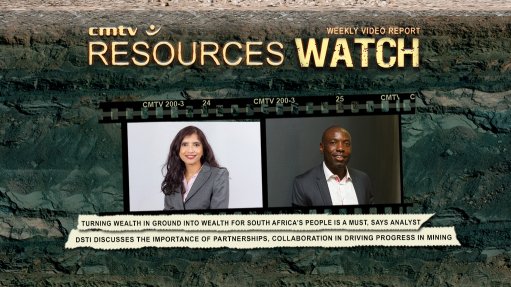When the boom goes bust, protect your profits by prioritising your people
This article has been supplied.
By Arjen de Bruin, Group CEO at OIM Consulting
It’s official: the commodity boom has gone bust.
While this might not be the case for all commodities – certainly not for metals such as copper – the commodity prices that carried the past two year’s National Budget, giving Treasury a welcome windfall, have dropped. And along with it, the mining industry’s profits.
Following the Covid-19 pandemic, commodities soared, which surprised us all: the expectation was that there would be a more gradual increase in demand. Platinum-group metals went through the roof. Iron exploded. Prices rose across the board, and in some cases, even doubled.
But now, we’re seeing a similarly abrupt drop. According to the World Bank, “Weakness in China’s heavy industry and housing construction sectors has been offset by resilient demand in the manufacturing of metals-intensive renewable energy products, amid ample metal supply. Following a projected decline of 12% in 2023, base metal prices are expected to fall 5% in 2024 due to slowing demand.”
Now, in stark contrast to their earlier performance, platinum metals such as rhodium and palladium are not performing well, while diamonds’ profits are plunging (tip for the smitten: buy those engagement rings now!)
And yes, as with all cycles, the wheel will eventually turn again: firming global growth and policies to expand renewable energy infrastructure are anticipated to drive a rebound in metal and mineral prices next year.
But this is little comfort for mining organisations, which are facing other challenges, such as crime, theft and logistical issues. They’re simply not able to move their metals, leading to stockpiling and bottlenecks in the supply chain.
For OIM Consulting, which specialises in equipping supervisors for operational excellence, our clients mainly wanted one thing these past few years: Yield. The more tonnes we could extract, the better the bottom line. The more effective the supervisor, the more successful their shifts – and the more exceptional the profits.
But now, we see the narrative starting to shift. Proficient and productive supervisors remain in high demand, but our conversations now centre around cost per ton. We need to reduce our cost per ton, dropping operational expenses and safeguarding the organisation’s bottom line. How do we do this?
Restructuring. When profits are down, organisations tend to restructure as their first line of defence. A workforce that is bloated or inefficient is not ideal and will not move the needle on your targets. You want your people – from the front-line leaders to the back office – to be fit for purpose and equipped to serve the company’s operations.
However, restructuring is generally a once-off exercise and doesn’t always create the framework needed for positive and sustainable change. In fact, restructuring can often cause instability and negatively shift the company culture, if no healing action is taken simultaneously.
Empowering your workforce towards operational excellence:Now, more than ever, we need our people to perform optimally, efficiently extracting minerals at the lowest cost possible, while consistently – and safely – achieving targets.
This is where a programme such as OIM’s Supervisory Development Programme (SDP) adds immense value. The programme encompasses classroom learning and on-the-floor coaching to capacitate supervisors with the skillsets, toolsets and mindset they need to achieve targets, minimise downtime and reduce the cost per ton. It also includes a focus on safety – important for ensuring continuity and minimising downtime. Our Culture Alignment Programme, one of SDP’s components, acts to ensure the culture of the workforce is healthy and aligned with the goals of the organisation.
And the good news is that this is within your locus of control. You might not be able to control the commodity cycle, crime or issues at the ports, but you can equip and empower your people to operate more effectively. Investing in your people is in your control.
Article Enquiry
Email Article
Save Article
Feedback
To advertise email advertising@creamermedia.co.za or click here
Announcements
What's On
Subscribe to improve your user experience...
Option 1 (equivalent of R125 a month):
Receive a weekly copy of Creamer Media's Engineering News & Mining Weekly magazine
(print copy for those in South Africa and e-magazine for those outside of South Africa)
Receive daily email newsletters
Access to full search results
Access archive of magazine back copies
Access to Projects in Progress
Access to ONE Research Report of your choice in PDF format
Option 2 (equivalent of R375 a month):
All benefits from Option 1
PLUS
Access to Creamer Media's Research Channel Africa for ALL Research Reports, in PDF format, on various industrial and mining sectors
including Electricity; Water; Energy Transition; Hydrogen; Roads, Rail and Ports; Coal; Gold; Platinum; Battery Metals; etc.
Already a subscriber?
Forgotten your password?
Receive weekly copy of Creamer Media's Engineering News & Mining Weekly magazine (print copy for those in South Africa and e-magazine for those outside of South Africa)
➕
Recieve daily email newsletters
➕
Access to full search results
➕
Access archive of magazine back copies
➕
Access to Projects in Progress
➕
Access to ONE Research Report of your choice in PDF format
RESEARCH CHANNEL AFRICA
R4500 (equivalent of R375 a month)
SUBSCRIBEAll benefits from Option 1
➕
Access to Creamer Media's Research Channel Africa for ALL Research Reports on various industrial and mining sectors, in PDF format, including on:
Electricity
➕
Water
➕
Energy Transition
➕
Hydrogen
➕
Roads, Rail and Ports
➕
Coal
➕
Gold
➕
Platinum
➕
Battery Metals
➕
etc.
Receive all benefits from Option 1 or Option 2 delivered to numerous people at your company
➕
Multiple User names and Passwords for simultaneous log-ins
➕
Intranet integration access to all in your organisation


















